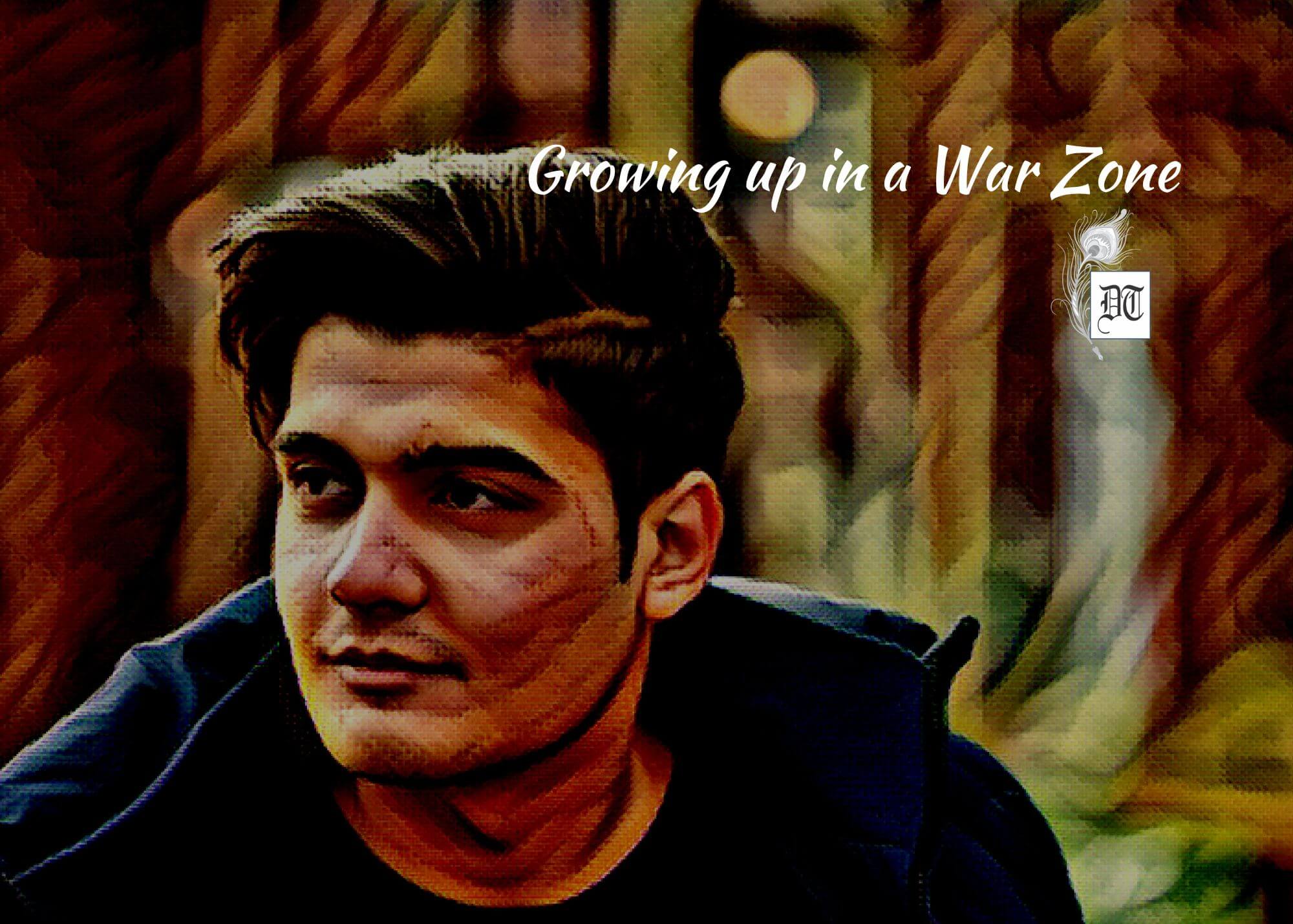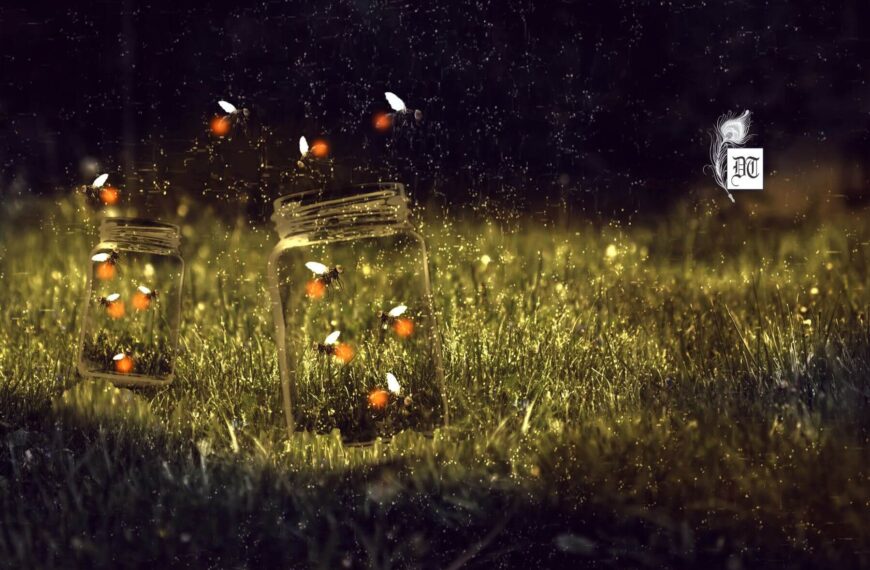Different Truths is introducing a new section, short stories, with Madhumita’s wonderful story. She is a splendid storyteller.
There was a great commotion at the gates of heaven that afternoon. The dwarpals, guarding the gates, had never ever encountered such a situation in their entire immortal lives. It was a knock, nock, knocking at heaven’s door with such a desperation and gusto that they were already apprehensive about the visitor knocking. Usually it was a familiar knock when the Yamadoots arrived with the spirits of departed mortals. They opened the heavy ornate gate overlooking the Nandan Kanan, the heavenly garden where the parijaat blossomed throughout the cosmic years.
A puny man with a harassed look stood there.
“Please allow me to go in,” he pleaded.
“But who are you and why should we let you in?
“Why are you alone?”
The guards shot a series of questions at him. They looked around for a Yamadoot, but other than the man there was not a soul around. Assuming the messenger of the King of death, Yamaraj had gone back to earth in a hurry to accompany another soul; they demanded the man showed his gate pass to heaven. The man looked bewildered and flummoxed.
“But how could you have come here without a gate pass? Every soul is issued one the moment they leave the body.”
It was the turn of the guards to be bewildered now. The man claimed he hadn’t died, was very much alive and had come to heaven all by himself, without being escorted, to seek justice from God. None on earth could help him and this was the only way he hoped his problem could be solved. It was beyond the guards’ comprehension. They decided to take him to the gods. They would approach Devraj Indra, the king of the gods first, as he was the most accessible one. He was there every afternoon through evening in the banquet hall that was at the outermost part of the heavenly presidential palace, in the clouds around Mount Meru.
***
Devraj Indra, the most handsome golden-bodied god with golden jaw, nails, hair and beard, sat on his throne of gold studded with jewels so precious that mortals have never seen or could evaluate. He had a gold goblet in his hand from which he sipped the soma rasa, the divine juice, manna dew. The four-tusked elephant, Airavat, stood at the door flapping his huge ears. The banquet hall was reverberating with a most melodious music. The several musical string instruments resonated, harmonizing with the rumbling mridangam, the silver sounding voices of the singers and the tinkling of the ghungroos, gold anklets with little ringing bells tied around the dainty feet of the dancers. The apsaras and the gandharvas were dancing. They were ethereal in their grace, so divinely beautiful that the puny man from earth almost forgot why he had come t o heaven. He gasped, in an ecstatic shock, and passed out.
o heaven. He gasped, in an ecstatic shock, and passed out.
And everything stopped. The veena player’s left hand stopped on the fret and the right hand forgot to pluck the strings. The mridangam sat on the player’s lap, silent. Songs died an abrupt death in the singers’ voices. The apsaras’ dancing feet became static. They all looked towards the door with such a synchronised movement that it almost seemed to be part of the dance. Then Urvashi, Menaka and Rambha, the prima donnas of the recreational congregation in heaven, left the room, disgusted. The king, Indra, about to take a sip from his goblet, furrowed his brows and looked first at the dancers, and then, at the door.
***
The man was brought back to his senses, amrit, the divine aqua pura, being splashed on his face. There was no water in heaven. The gods drank only amrit, the drink that has made them immortal. The unfortunate man, gaining his senses, asked for a drink of water and was given amrit. After drinking a full  goblet of the refreshing liquid, he narrated his story. It was one of the worst, most disastrous train accidents, he began. He was going to the city, to look for a better job, on the advice of his brother-in-law. His wife had wanted to accompany him. But promising her that he would soon find a house there to stay, he had left alone. He never reached the city. He was happily swaying on an upper berth as he dreamed of a future bliss when the train rocked, jolted him out of his sleep and crashed, sending him to an instant oblivion.
goblet of the refreshing liquid, he narrated his story. It was one of the worst, most disastrous train accidents, he began. He was going to the city, to look for a better job, on the advice of his brother-in-law. His wife had wanted to accompany him. But promising her that he would soon find a house there to stay, he had left alone. He never reached the city. He was happily swaying on an upper berth as he dreamed of a future bliss when the train rocked, jolted him out of his sleep and crashed, sending him to an instant oblivion.
He woke up in a dingy room one day, on a steel bed, one of the many lined up, each holding a figure with tubes, cylinders and masks on their noses. He had lost himself. He didn’t know who he was or what he was meant to be. When released he had roamed the strange streets in alien towns for days on end, running to months, and as he came to know later, a year and a half. He found himself back one day and remembered his home.
“And you went back home. So what is your problem?” Narad Muni, who was always present in scenes of confusion and commotion, and had come in and had listened to the story, quipped in. The man began to weep. And carried on, sobbing all the while, with his strange story, with every divine being present there, listening on, with rapt attention.
 It was evening when he reached his home. Dusk was setting in and as he neared
It was evening when he reached his home. Dusk was setting in and as he neared his home he saw his wife coming in, from the house, with a little earthen lamp in her hand towards the tulsi mancha in the garden, the holy plant growing out of a tall stub, for the daily worship. She screamed on seeing him, saying he was dead and a ghost, and ran inside. She dropped the lamp on the ground; the tiny flame flickered and went out. His elder brother emerged from inside. He announced that his only brother was dead, a victim of a ghastly rail accident, more than a year ago. He had identified the body and that cremation and funeral rites were done. The wife was now his. He had married the hapless miserable widow out of compassion, as a magnanimous gesture.
his home he saw his wife coming in, from the house, with a little earthen lamp in her hand towards the tulsi mancha in the garden, the holy plant growing out of a tall stub, for the daily worship. She screamed on seeing him, saying he was dead and a ghost, and ran inside. She dropped the lamp on the ground; the tiny flame flickered and went out. His elder brother emerged from inside. He announced that his only brother was dead, a victim of a ghastly rail accident, more than a year ago. He had identified the body and that cremation and funeral rites were done. The wife was now his. He had married the hapless miserable widow out of compassion, as a magnanimous gesture.
***
He was dead. Officially. And yet he wasn’t. He was very much alive, as alive as all the people in his town, as his wife and her new husband. But to the earthly world, he did not exist. No longer. Dead and gone, he was now only a photograph that conveyed memories to all who has known him. He couldn’t stay on earth. Neither could he stay in heavens, the gods reminded him. After all he was a mortal and a living one.
But he’s had amrit here! That makes him immortal! Narad Muni, the ever alert one, interjected, cutting Devraj Indra short.
A living mortal immortal had no place to stay now. Neither in heaven nor on earth; now, he was stranded in an uncertain limbo. He decided to live in hell for an endless period of time. Wasn’t his life too like living in hell? Indra took pity on him. After all he was a god. And gods are always there to come as saviours to unfortunate suffering men. He ordered his chariot to be brought at the gates. He would visit earth. A cursed god, he was determined to help this cursed earthling.
Pix from Net






 By
By
 By
By